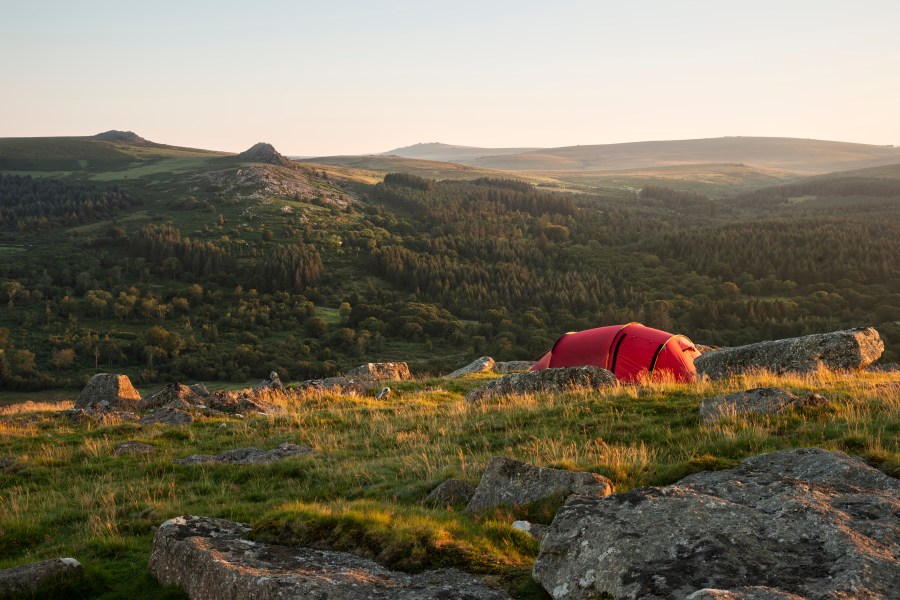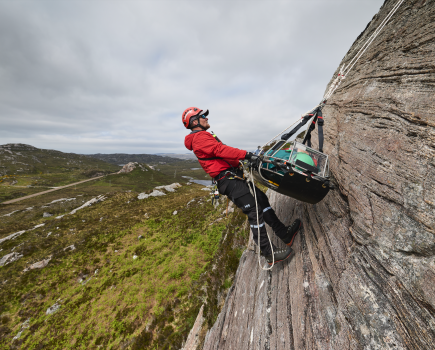On the day of the Dartmoor Supreme Court ruling, backpackers, walkers and nature-lovers alike celebrate as the Supreme Court upholds the right to wild camp on Dartmoor. “A right that was under threat has been defended. A tradition that connects us to the land, the sky, and something far older than laws has been upheld. We didn’t bring this case to court—but together, we brought it to the nation’s attention. We made it impossible to ignore just how many people believe in a deeper connection to the land, and in the right to access it freely,” reads the statement from the Right to Roam campaign via Instagram.
Main image: Camping on Dartmoor is a right of passage for many young people | Credit: Shutterstock
As Lewis Winks of the Right to Roam campaign explains, this legal case brought by Alexander and Diana Darwall – owners of the 4,000-acre Blachford Estate in Dartmoor – has been rumbling on for years now, originally resulting in the loss of wild camping rights in early 2022. Although this was later overturned in the Court of Appeal, today’s Supreme Court ruling has determined that wild camping is to remain a legal right within the national park.
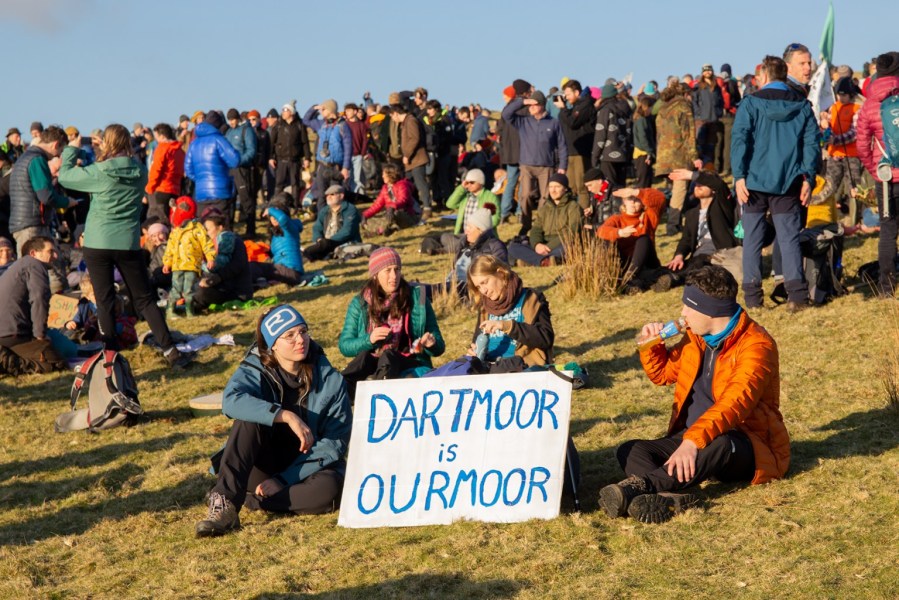
Tom Usher, CEO Dartmoor Preservation Association, told The Great Outdoors it has been a “generationally important public access battle.” He added: “This is an historic victory for public access, and the DPA are very proud to have played a central role in campaigning to keep backpack camping on Dartmoor as a right. This has been achieved through the work of many people and we salute the courage of the National Park Authority in fighting this case to the end.”
In a statement released as the court’s decision was announced today, the Open Spaces Society general secretary, Kate Ashbrook, declared that after this “truly landmark decision, the government must act to ensure a right to sleep under the stars applies to all national parks and wild country.”
Kate added: “This is a tremendous outcome, confirming what we have believed all along, namely that there has always been a right for the public to camp on the nearly all the 359 square kilometres of Dartmoor commons…We trawled through the legislation from the nineteenth century relating to common land and access, which showed that much of it expressly excluded camping from the right of access. It followed that camping must fall within the broad definition of open-air recreation; there would otherwise have been no reason expressly to exclude it. The judges agreed.”
Dartmoor’s unique access rights have offered people a gateway into experiences which are not legally available anywhere else in England – via Ten Tors or Duke of Edinburgh’s Award expeditions, or through camping on the moors with friends and family.
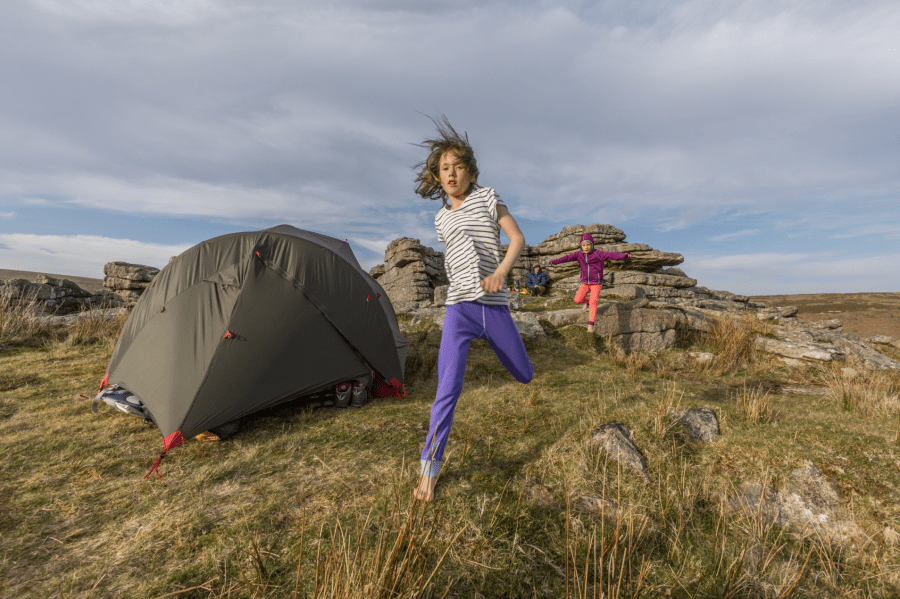
The legal right to wild camp on Dartmoor has been the stepping stone to a lifetime of adventure for generations of young people. As that right hung in the balance, Deputy Editor Hanna Lindon recently took advantage of its protection on a multi-day moorland adventure with her family. For our latest special on family adventure, Hanna wrote with passion and humour about the freedom of these moors and her family’s first backpack across the contested ground of Dartmoor.
She writes: “As our first day of backpacking on Dartmoor drew to a close, I’d never felt more grateful to have the legal protection of those access rights. It’s not so bad wild camping in the teeth of landowner disapproval if you’re experienced and alone. You can pitch up after dark, leave at dawn, and take a fairly relaxed attitude to the prospect of eviction. But things are a bit different when you’re carrying enough gear for a small army and the kids need to be in bed by eight…”
You can read her full defence of the right to wild camp on Dartmoor in the July issue of The Great Outdoors.
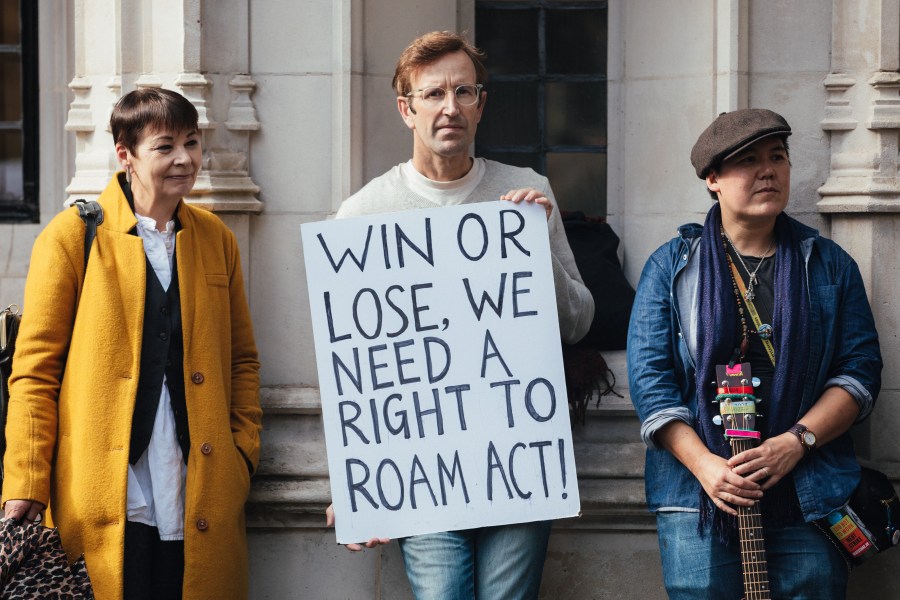
In England, the right to sleep under the stars is confined to just 0.2% of the country – about 70,000 acres in Dartmoor National Park. This is under threat, as we have seen, from landowners with enough wealth to challenge it in court. So, the Right to Roam campaign still fights for a national right to roam in England and Wales, a foundation of access rights which extend to land and water, and which include the ability to sleep under the stars in a place of nature you can care for and steward.
This has always been customary in the Highlands, but was extended across Scotland thanks to the Land Reform Act passed in 2003, and supported by the Scottish Outdoor Access Code. Never mind a new national park, they say; we can look North of the border for inspiration as we navigate ways to both support rural communities and educate people to explore with a ‘universal countryside common sense‘ in their toolkit.
With today’s ruling ringing in our ears, we can be sure of one thing: the Darwall’s legal case has reignited the Right to Roam movement in the minds of many outdoor-goers. Nadia Shaikh, Right to Roam organiser and TGO nature columnist, looks to local grassroots action groups such as The Sheffield Tree Action Group and The Friends of the River Wye as a source of hope in these times of nature disconnectedness.
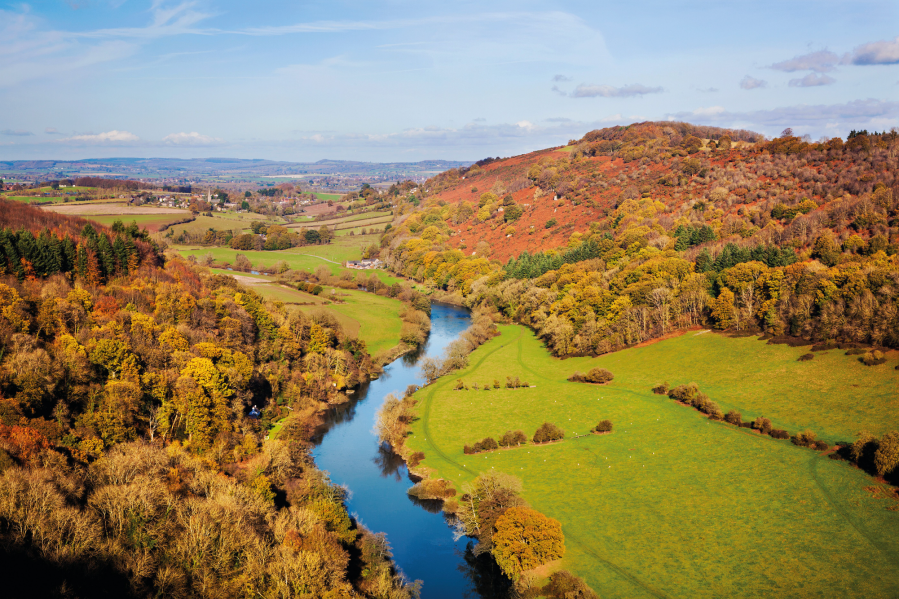
Commenting, Dr Rose O’Neill, Chief Executive, Campaign for National Parks, said: “Today is a day of relief and celebration. The Supreme Court has upheld what has been abundantly clear for decades —that the right to wild camp on Dartmoor belongs to everyone. This ruling restores a rare and precious freedom, and reaffirms that our National Parks are not just for those who own the land, but for all who seek connection with it…We are proud to stand with those who fought to defend this right, and grateful that the Court has recognised how vital access to nature is to people’s lives.”
Applauding the campaigners, she added: “The nation owes our thanks to the Dartmoor National Park Authority and the Open Spaces Society for fighting this battle in court, and to Dartmoor Preservation Association and the Stars are for Everyone and members of the public for raising a fighting fund and for building so much support. But this is just the first step. In most of England’s National Parks, opportunities to camp in the wild remain extremely limited. We call on the government to honour its promise to improve access to nature by bringing forward new legislation that includes the right to responsible wild camping, not only on Dartmoor but across all our National Parks.”
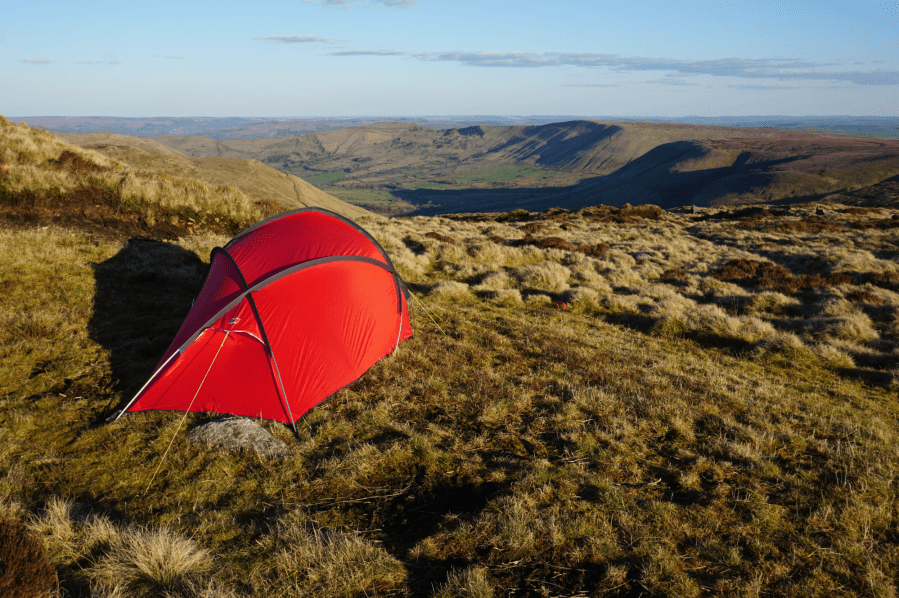
Wild camping – once simply known as backpacking and a keystone of the British multi-day trekking experience – is at the heart of finding joy and solace in the great outdoors. In fact, as Equipment Editor Chris Townsend notes, the practice appeared on the front cover of the first issue of this very magazine, published in 1978.
In the words of Jess Day of the Right to Roam campaign: “Camping wild beneath the stars isn’t just a hobby, a weekend thrill, or a product to be packaged and sold. It should be a fundamental right. Connecting to nature in this most basic, natural way shouldn’t be a luxury or privilege. It’s not something to be fenced off, locked away, or pay-walled.”
We will continue to support Right to Roam as they campaign to extend the rights upheld on Dartmoor across England and Wales until the stars truly are for everyone.
If you agree, you can join the Right to Roam campaigners and supporters on Dartmoor on May 26th. Follow @right.2roam on social media for more details.

